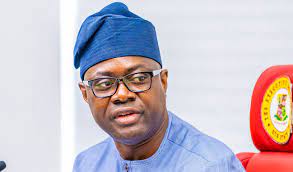As a way of enabling the federal government to raise the necessary funds for national development, the Senate approved foreign loans of about $28 billion, equivalent of N10.08trillion in the last one year.
This is just as the upper legislative chamber, in the period under review, passed a total of about 450 bills. Some of these Bills have already been signed into law and the remaining are in different stages of legislative processing.
Senate President, Dr. Ahmad Lawan, who disclosed this in his first anniversary briefing of the ninth National Assembly, said that the approvals were based on requests by President Muhammadu Buhari to borrow, both from the domestic and foreign sources.
He, however, said the upper legislative chamber “had ensured proper scrutiny for the desired projects and programmes of government, the conditions of the facilities; before approving such borrowing requests.”
“The task ahead of us is to ensure tracking, monitoring and supervision of how the loans are applied. We must ensure that the target projects remain, and that there is value for money also,” the Senate President added.
Lawan further informed that “the current experience of low revenues to government, also challenges us to think and evolve new or additional sources of funding government projects, especially, for the development of our infrastructure.”
He therefore pointed out that while borrowing may be inevitable, the federal government should also consider a Public Private Partnership, PPP as a means of funding some of its projects.
Highlighting some achievements of the Senate, he said it had been able to change the federal government budget cycle from the January to December period.
“It’s noteworthy that the passage of the 2020 Appropriation has enabled the Federal Government to start the implementation of the budget from January 2020. It also created a better environment for businesses in Nigeria to plan on their financial activities within the year, he said.
Lawan also stated that “the Senate successfully amended the Deep Off-Shore and Inland Basin Production Sharing Contracts Act Cap D3LFN 2004 (Amendment Bill 2009); which was specifically geared towards increasing our collectable revenues from proceeds of crude sales.”
He listed other areas of legislative interventions considered by the Senate to include the passage of Medium Term Expenditure and Fiscal Strategy Paper MTEF/FSP 2020-2022; Public Procurement 2007 (amendment); Finance Bill 2019 (Nigeria Tax and Fiscal Law) (SB.140); Companies and Allied Matters Act, Cap C20 LFN 2004 (Repeal and Re-enactment) Bill 2019 (SB. 251).
These legislative interventions, according to him, have direct positive impacts on the nation’s economy.
“As more revenues are earned by the government, the capacity and ability of the government to address the infrastructural deficits are enhanced,” he said.
He also said the Senate had carried out confirmations for appointments by the Executive arm, recalling that the upper legislative chamber suspended its recess in order to screen and confirm the ministerial nominees of the President in July last year.
Lawan added that barely a month after the inauguration of Ninth Senate, it confirmed the appointment of Chief Justice of Nigeria, Hon. Justice Ibrahim Tanko Mohammed on July 17, 2019.
“Today, 11th June 2020, we have just confirmed the nominee for the President of the Court of Appeal, Hon. Justice Monica B. Dongban-Mensem. In all the cases, our committees worked hard to meticulously screen the nominees.
“Thus, in the last one year, this Senate has successfully confirmed 33 Presidential confirmation requests.
“There is no gainsaying that these confirmations and subsequent appointments added value to the administration and management of agencies of government. In other words, they promote and engender good service delivery to citizens,” he stressed.



